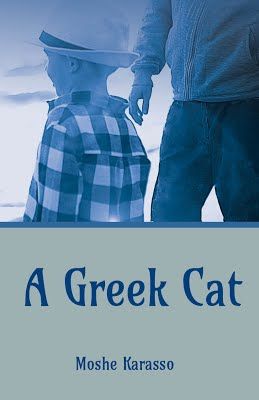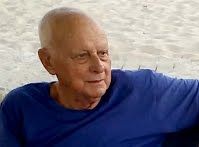Looking at this book in the broader context of Existentialist literature, one cannot help but compare it with the works of French writer Albert Camus, whose grasp of the absurdity of existence liberates man from the hope of a perfect human morality that demands life at any cost.
From Moshe Karasso
Born in Istanbul, Turkey in 1933.
Married with three children. Lives in the Tel Aviv area of Israel.
Writes primarily essays and poems.
This is his first work of fiction.
The
book is not an autobiography (although written in first person), but is
influenced by the life of the Greek Islands (where my father was born), the
historical events of the Second World War, and the fate of the
Jews during this period.
Hundreds
of years ago, I believed that people who were born in a particular country, who
lived there and died there, were fundamentally different from people who lived
in a different land. Now I know that the progressions of events that I’ve seen
in my life could have taken place anywhere on the entire planet. Cruelty and
kindness are interwoven, like the hibernation of forest bears, from the day we
came into the world. Laughter and suffering, the ridiculous and the sublime,
serve only as a screen for the storm of a clown’s feelings as he entertains
others against his will.
Synopsis
“A Greek Cat” is the narrative of a
native of one of the Greek Islands, who transcribes his experiences from birth
through old age.
The narrator was born to a Jewish
family whose connection to Judaism is tenuous.
The happiness of his childhood is cut
short when his father walks out on them and, later, his mother dies, and he is
left tormented and alone.
After leaving the island, he goes to
Salonika, where his five bachelor uncles have been granted custody of the boy.
With the German occupation of Greece,
he escapes to Crete and joins the British army. After the surrender of his
battalion, he is transferred to an industrial work camp. He is saved from the
bitter destiny of a starved and exploited slave when his employer brings him to
his farm, where he carries out any necessary tasks. He finds himself torn
between hatred and appreciation: “I was disoriented, lost between hatred and
gratitude towards these people. Now, I would have to redouble my efforts to
hate them.”
His good fortune works against him
when, after the war, he is suspected of collaborating with the enemy. After a
series of adventures, some of which put his life at risk, he eventually arrives
in Israel.
In his old age and his last years, he
loses his sanity.
I hope you enjoy the book.
Mosh Karasso





1 comments:
Thanks for hosting
Post a Comment